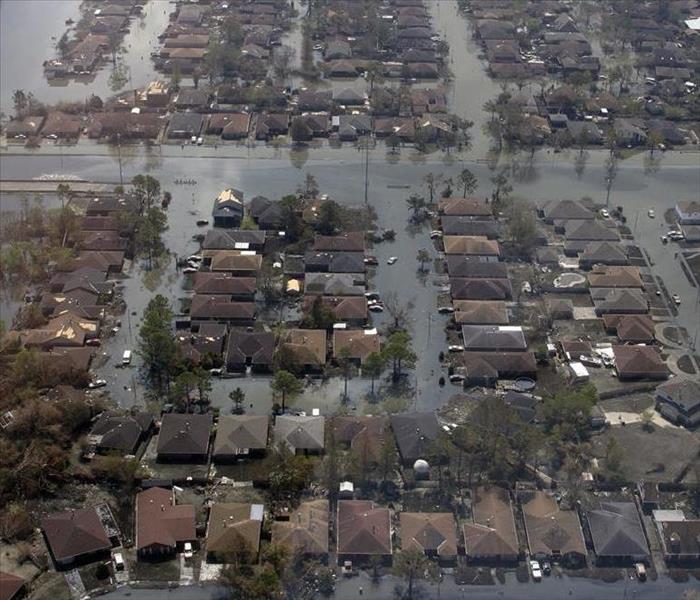How To Prepare for a Flood in Your Philadelphia County Home
9/15/2023 (Permalink)
One of the most common and widespread natural disasters in the United States is flooding. Floods can happen naturally on coastlines, near rivers, along city streets or even in the desert, and yes in Philadelphia County, PA.
The National Flood Insurance Program cited up to 25% of recent claims have been from low-risk communities. On average, floods cause $6 billion in annual losses in the U.S.
It’s interesting to take a look at your home from above, a satellite, birds-eye view to make sense of the curving streets and lay of the land. Overlaying a flood-zone detail helps to establish if your neighborhood is prone to water. While there are varying levels of flood zones, it’s best to prepare for the worst.
Prevention and timely preparation to handle the potential flooding affect your restoration and replacement loss. Here are a few prevention tips:
- Determine if your home is located in a floodplain
- Listen to local emergency management instructions
- Create a plan if your home is not accessible. This plan is often referred to as a COOP (continuity of operation)
- Review your emergency plans annually
Visit: https://www.ready.gov/floods for a comprehensive plan for your area.
Flood Actions Steps:
BEFORE A FLOOD
- Turn off utilities at the main switch valves.
- Disconnect electrical equipment and appliances
- Move vehicles out of a low-lying garage
- Raise elevators from the bottom
AFTER A FLOOD-SAFETY FIRST
- Account that your family is safe and evacuated to the designated area meeting place.
- If water has moved into your home and evacuation is not possible, move to the upper floor and wait for rescue personnel.
- While evacuating, avoid driving through rising water.
- Do not touch electrical equipment.
- Do not walk through moving water.
- Do not use open flames (gas may be escaping through ruptured mains)
- Avoid floodwaters. Floodwaters may be contaminated with oil, gasoline, raw sewage. Water may be electrically charged.
- Stay out of the home if it is surrounded by floodwaters.
- Listen to news reports to learn if the community’s water supply is safe to drink
- Return only when authorities deem the area is safe.
SECURE THE PROPERTY
- Contact local emergency officials
- Secure main entrance of building
- Alert Security company and alarm company of the situation.
STABILIZE THE PROPERTY
- Shut off source of water or call qualified party to stop water source
- Give priority to the protection of power plant, fire pumps.
- Open basement of low-level windows to equalize water pressure on the building’s foundation and walls
- Begin water damage mitigation steps only if local authorities deem safe.
- Notify your insurance agent or risk manager.
SERVPRO
- Link:https://www.SERVPROpennypackbustleton.com/water-damage-restoration
- Contact: 215-671-7777
- Available 24/7

 24/7 Emergency Service
24/7 Emergency Service
